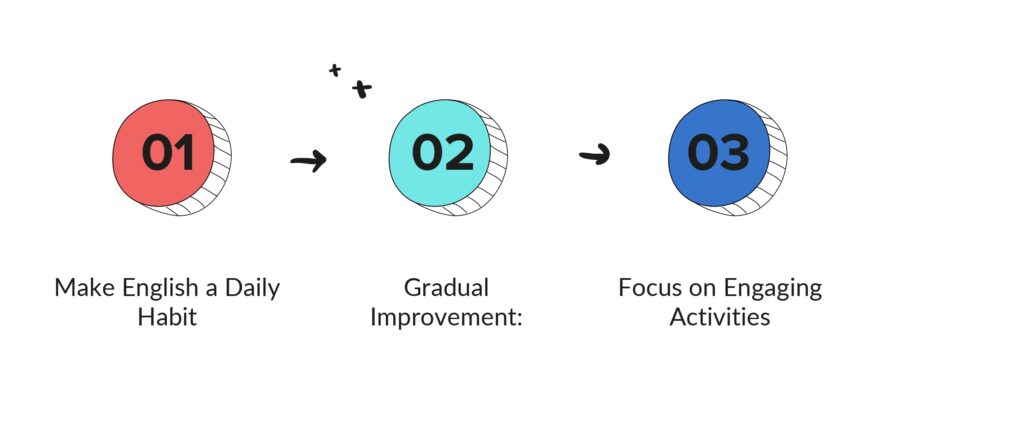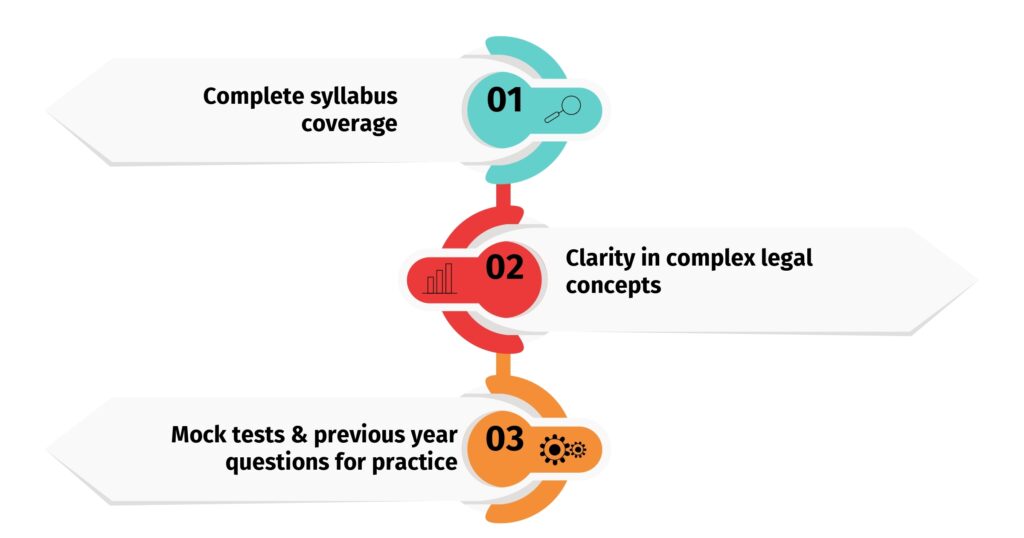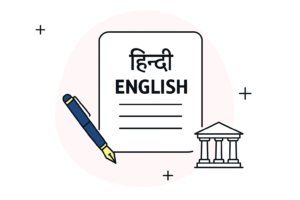If the English paper sends chills down your spine, you’re not alone. But here’s the good news, English is not just another subject to “get through.” It’s your secret weapon in judiciary exams, and with the right strategy, it can be your strongest suit.
From sharpening comprehension to conquering vocabulary, grammar, and essay writing; this blog is your ultimate guide to turning the English language paper into your personal strength.
Daily Practice: The Power Move for English Proficiency

Consistency is your best friend. Make English a non-negotiable part of your daily study schedule. Whether it’s reading the Editorial section of your favorite newspaper, solving grammar drills, or writing short essays, engaging with the language every day will skyrocket your fluency and confidence.
Think of it like muscle-building. The more you train, the stronger you get!
Embrace the Magic of Newspapers and Editorials
Want to level up your comprehension and current affairs knowledge at the same time? Editorials are your goldmine. They expose you to thought-provoking arguments, persuasive writing styles, and new vocabulary; exactly the skills judiciary exams test.
Start analyzing how writers structure their thoughts, how they transition between ideas, and how they wrap up a compelling conclusion. These are all techniques you can replicate in your own essays.
Grammar Greatness: Wren and Martin to the Rescue
There’s no shortcut here; Grammar is the backbone of your English preparation. And Wren and Martin? That’s your holy grail. Use this classic resource to build an unshakeable foundation in grammar rules, sentence correction, and error spotting.
With strong grammar skills, your writing becomes clear, sharp, and impactful, just like your arguments in a courtroom someday.
Vocabulary Vault: Unlock the Power of Words
A rich vocabulary doesn’t just impress the examiner, it helps you express complex ideas with clarity and precision. Make Norman Lewis’ “Word Power Made Easy” your daily companion. Learn new words, their roots, and usage.
The trick? Use those words in sentences, weave them into your essays, and watch your language skills transform from ordinary to outstanding.
Essay Writing: Your Personal Expression Playground
Judiciary exams love well-structured, articulate essays. Practice writing on contemporary legal and social issues. Begin with a punchy introduction, build strong, cohesive body paragraphs, and wrap up with a powerful conclusion.
Pro tip: sprinkle in legal references or relevant case studies to score major brownie points.
Precision and Composition: Less is More
Mastering precis writing is a game-changer. Learn how to condense information without losing its essence; A skill that’s priceless in both exams and legal practice. Practice distilling long passages into sharp, coherent summaries.
Clarity, conciseness, and command over language are the name of the game here.
Translation Practice: Vernacular Meets English
Remember, translation isn’t just about switching languages, it’s about maintaining accuracy, tone, and legal context. Dive into legal drafts in your vernacular language and practice translating them into English. The more you practice, the more fluent and precise your translations will become.
And yes, this matters a lot in the judiciary exams!
Final Thoughts: English is Your Competitive Edge

Mastering English for judiciary exams isn’t about mugging up grammar rules or word lists, it’s about building a voice, sharpening your legal expression, and setting yourself apart. From reading newspapers to writing compelling essays and perfecting translations, every little effort adds up.
So, put in the work, trust the process, and let your preparation do the talking in the exam hall. And hey; If you need expert-curated resources to guide you through this journey, don’t sweat it.
Edzorb Law English Language tools are designed to help you tackle the paper with clarity, confidence, and strategy.
This is your moment. Go seize it!

 Podcast
Podcast








 Features
Features






